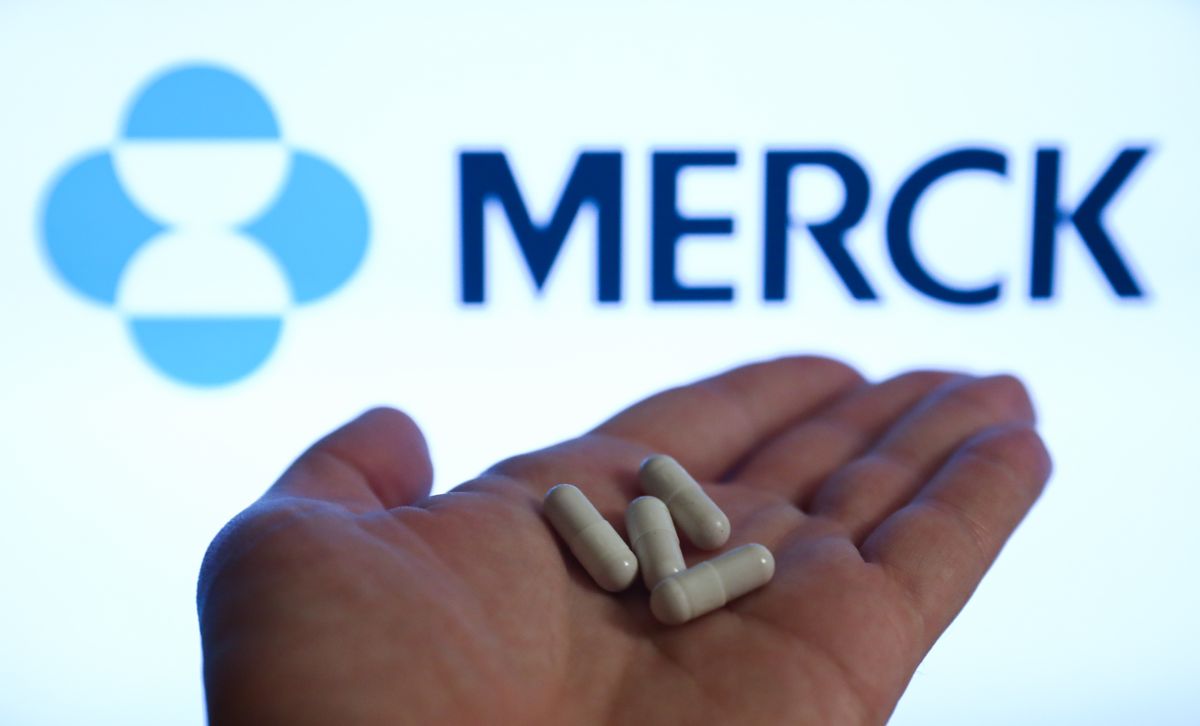Merck announced on Tuesday that it is suing the government over a recently approved plan to allow Medicare to negotiate prescription drug prices, aiming to stop one of the nation's first efforts to take a small step toward lowering sky-high drug prices in the U.S.
The lawsuit, filed in a federal court in Washington on Tuesday, claims that the plan is unconstitutional and calls it a "sham" and "tantamount to extortion." Merck, whose revenues topped $59 billion last year, says that the law, passed under Democrats' Inflation Reduction Act, violates the Fifth Amendment, regarding compensation for government purchase of property. The lawsuit also claims the law "makes a mockery" of its First Amendment rights by forcing the company to say that it agrees to a negotiated price with the government.
The lawsuit argues that, because the law doesn't allow the pharmaceutical companies to walk away from negotiations and unilaterally set their own prices — something that companies essentially already do — and "coerces" them to "smile, play along, pretend it is all part of a 'fair' and voluntary exchange," the law is unconstitutional. "This is political Kabuki theater," Merck's lawyers wrote.
This is the first major lawsuit filed against the law, which was all but guaranteed to be challenged by the pharmaceutical industry — one of the most powerful lobbies in Washington, D.C. That any provisions with even a mild challenge to Big Pharma's power and revenue passed Congress to begin with was significant — but this lawsuit, which the company says it is prepared to bring to the Supreme Court if necessary, could undo even that win.
Medicare unlocked the ability to negotiate drug prices for the first time under last year's Inflation Reduction Act. It allows the Department of Health and Human Services (HHS), which administers Medicare, to access lower drug prices for 10 of the hundreds of drugs covered under Medicare starting in 2026, bumping up to 20 drugs per year after 2029 and beyond. This could allow seniors and people with disabilities on Medicare — two groups especially vulnerable to experiencing poverty — to access lower prices for drugs.
Crucially, this is one of the only recent steps taken by lawmakers to lower prescription drugs at the federal level. Prescription drugs cost more in the U.S. than anywhere else in the world, due in large part to the pharmaceutical industry's strong grip over lawmakers. This is a major factor in U.S. residents having worse health outcomes than residents of any other wealthy country.
The government is already allowed to negotiate drug prices. For decades, the Department of Veterans Affairs has negotiated drug prices with manufacturers, allowing the agency to pay roughly half the amount for certain top drugs than Medicare does.
Merck has garnered sharp criticism for the lawsuit, which critics said is motivated by a desire to profit off the health and survival of Americans. Indeed, records show that Merck's revenue grew a whopping 22 percent in 2022.
"Merck claims that the fair price negotiation provisions Democrats passed last year will prevent development of new drugs, so they're suing to block them and force patients to pay more," wrote Rep. Pramila Jayapal, D-Wash., on Tuesday. "Yet Big Pharma spent $577B on stock buybacks and dividends from 2016-2020. Make it make sense."
"Merck is claiming the U.S. Constitution requires the U.S. government and people to be suckers. That's not true," said Public Citizen President Robert Weissman, calling for the government to act fast on drug price negotiations before the industry becomes even further empowered against the plan. "This lawsuit is a desperate attempt by the industry to beat back popular legislation that would curtail Big Pharma's ability to price gouge Medicare and secure monopoly profits. Full stop."

Shares